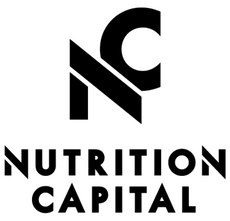In the intricate dance of digestion, our bodies rely on a series of enzymes to break down the foods we consume into nutrients that fuel our cells. Digestive enzymes, produced by the body and found in certain foods and supplements, play a crucial role in this digestive symphony. In this blog post, we will explore the benefits of digestive enzymes and how they can contribute to overall well-being.
What Are Digestive Enzymes?
Digestive enzymes are proteins that facilitate the breakdown of food into smaller, absorbable components. Produced by various glands in the body, these enzymes act like molecular scissors, cutting large molecules into smaller, more manageable pieces.
There are three main types of digestive enzymes:
- Amylases: Break down carbohydrates into sugars.
- Proteases: Digest proteins into amino acids.
- Lipases: Split fats into fatty acids and glycerol.
The Benefits of Digestive Enzymes:
-
Improved Nutrient Absorption:
- Digestive enzymes enhance the body's ability to absorb essential nutrients from food. By breaking down complex molecules into simpler forms, these enzymes make it easier for the intestines to absorb nutrients like vitamins, minerals, and amino acids.
-
Reduced Digestive Discomfort:
- For individuals who experience bloating, gas, or indigestion after meals, digestive enzymes can offer relief. Enzyme supplements assist the body in breaking down food more efficiently, reducing the likelihood of undigested particles causing digestive discomfort.
-
Alleviation of Food Sensitivities:
- Some people may have difficulty digesting specific types of foods, leading to sensitivities or intolerances. Digestive enzymes can help alleviate symptoms associated with such sensitivities by aiding in the breakdown of challenging substances like lactose or gluten.
-
Enhanced Energy Levels:
- Proper digestion is vital for the efficient conversion of food into energy. By supporting the breakdown of macronutrients, digestive enzymes contribute to optimal energy production, potentially reducing feelings of fatigue and sluggishness.
-
Support for Aging Digestive Systems:
- As we age, the body's natural production of digestive enzymes may decline. Supplementing with digestive enzymes can provide support for aging digestive systems, ensuring the continued breakdown of nutrients for absorption.
-
Weight Management:
- Efficient digestion plays a role in weight management. By promoting the breakdown and absorption of nutrients, digestive enzymes may contribute to a balanced metabolism and help prevent overeating.
-
Immune System Support:
- The digestive system and the immune system are closely linked. Proper digestion ensures the absorption of essential nutrients that support immune function. By aiding digestion, enzymes indirectly contribute to immune system health.
Incorporating Digestive Enzymes:
-
Natural Food Sources:
- Include enzyme-rich foods in your diet, such as pineapples, papayas, mangoes, avocados, and fermented foods like sauerkraut. These foods naturally contain digestive enzymes that can complement your body's own production.
-
Supplements:
- Digestive enzyme supplements are available in various forms, including capsules and powders. These can be taken with meals to enhance the body's natural digestive processes. Our suggestion for Digestive Enzymes includes:
Digestive enzymes are silent heroes in the complex process of digestion, supporting nutrient absorption and overall well-being. Whether obtained from natural food sources or through supplements, incorporating digestive enzymes into your routine can be a valuable step toward unlocking optimal digestive health.
As with any dietary changes or supplements, it's advisable to consult with a healthcare professional to determine the most suitable approach based on individual health needs. Embrace the benefits of digestive enzymes, and let the digestive symphony harmonize for a healthier, more vibrant you.

